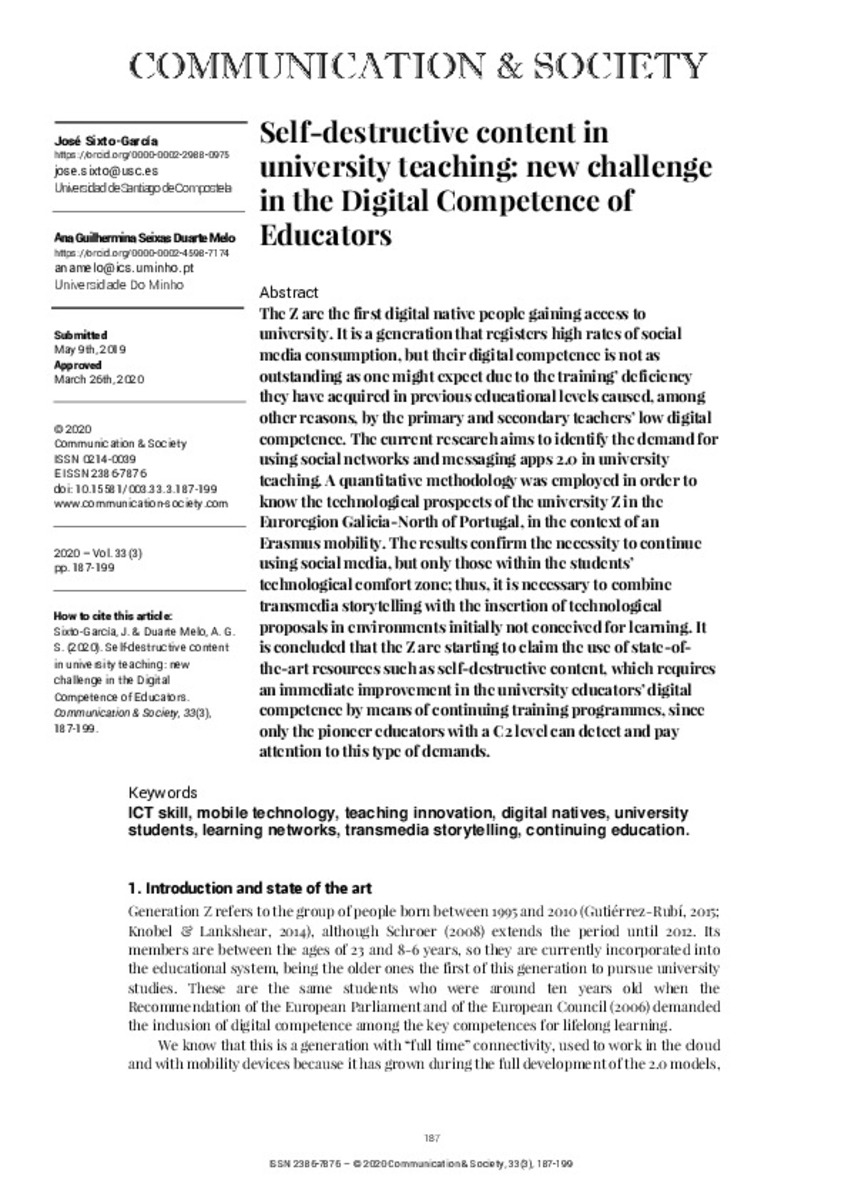Self-destructive content in university teaching: new challenge in the Digital Competence of Educators
Fecha de publicación :
2020
Editorial :
Servicio de Publicaciones de la Universidad de Navarra
Cita:
Sixto-García, J. (José); Duarte-Melo, A. (Ana). "Self-destructive content in university teaching: new challenge in the Digital Competence of Educators". Communication & Society. 33 (3), 2020, 187 - 199
Aparece en las colecciones:
Estadísticas e impacto
0 citas en

0 citas en

Los ítems de Dadun están protegidos por copyright, con todos los derechos reservados, a menos que se indique lo contrario.








